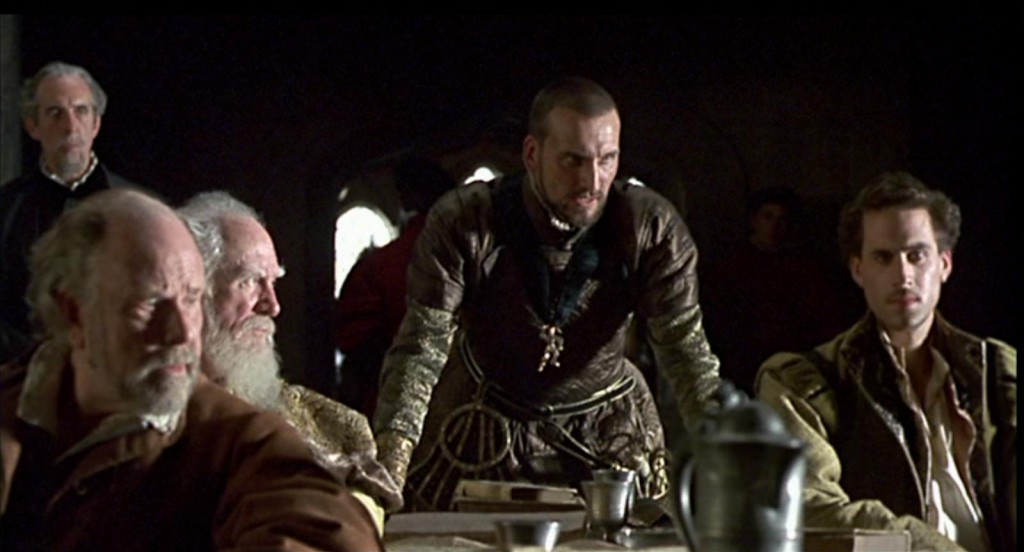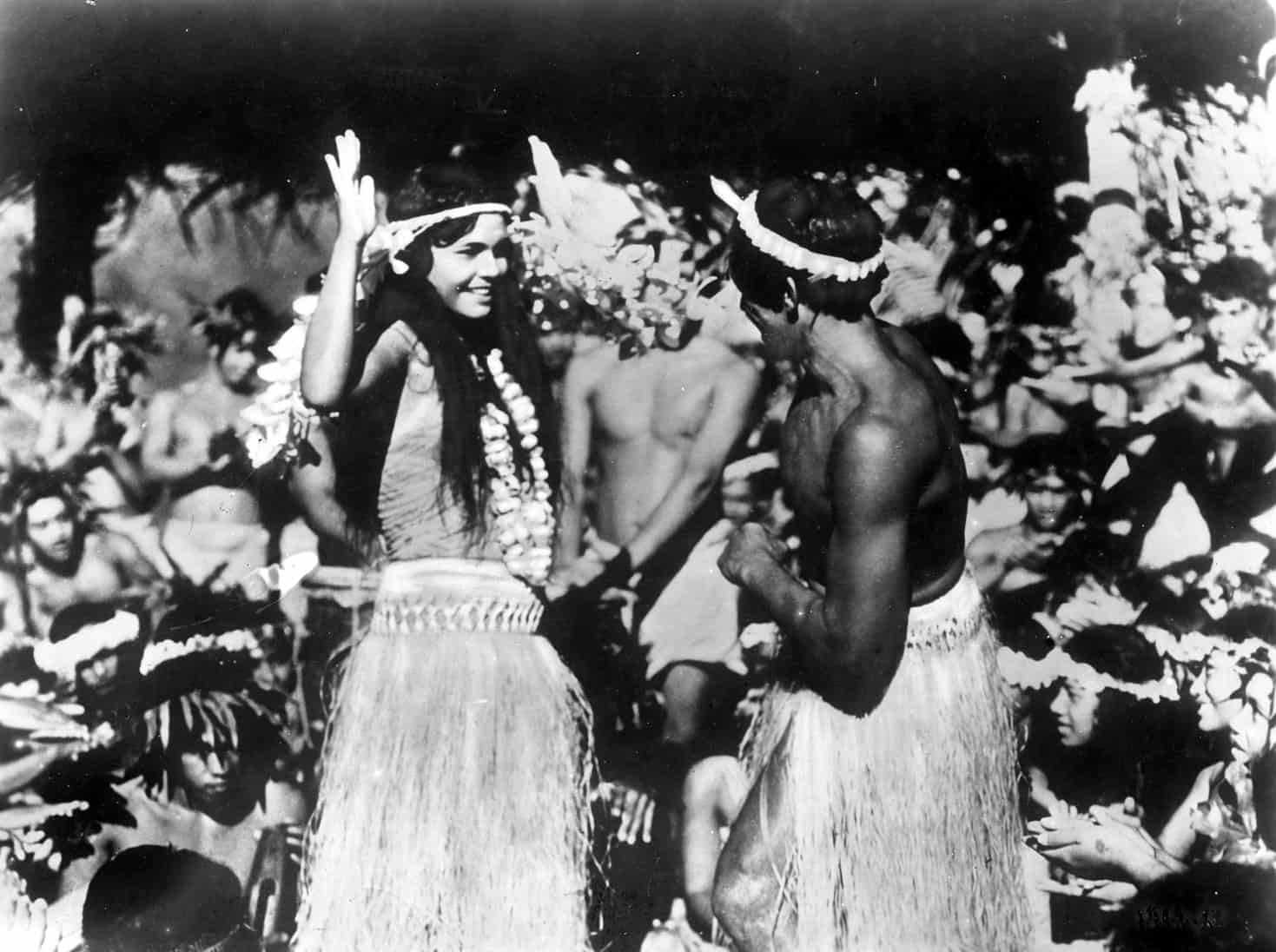 Elizabeth
Elizabeth
Directed by Shekhar Kapur
Written by Michael Hirst
UK, 1998
The trouble with biopic is that, for the most part, the real life story of the big name doesn’t fit into any kind of cinematic format that we have become accustomed to over the years, and there seems to be a rule that the further back the setting, the more creative license can be employed. Historians may scream blue murder, educated audiences may turn up their nose, but a necessity of storytelling is spinning a decent yarn; hence Titanic, hence Gladiator, hence Braveheart. Approach such material with the perspective of ‘historical fiction’ and chances are you’re going to enjoy the drama of proceedings much more than, say, the damp squib loyalty to fact at the expense of dynamism of this year’s Hitchcock. Taking plenty of liberties but providing a fresh dose of excitement and intrigue to the pages of history is Shekhar Kapur’s Elizabeth, a 1998 drama rich to the eye and mind.
It’s 1558, and England is practically in ruin, rife with sectarian violence, empty coffers and sitting at its throne a dying, heirless Queen Mary (national treasure Kathy Burke). A blindingly fervent Catholic regime, the soul of the nation is threatened by the notion that Mary’s successor is her Protestant half-sister Elizabeth (Cate Blanchett). Surviving execution long enough to outlive her hateful sibling, Elizabeth ascends to the throne surrounded by enemies and crises, with scheming lords in her court and predatory potential invaders abroad eyeing up her lands. Backed by her few loyal scribes, namely exiled spymaster Francis Walsingham (Geoffrey Rush), her lover Robert Dudley (Joseph Fiennes) and political heavy Sir William Cecil (Richard Attenborough), Elizabeth mounts an unlikely campaign to return the country to its former glories while resisting attempts at betrothal, enemy incursion and assassination. In true arcing style, she must transform herself from vulnerable flower of innocence into matriarchal and monstrous master, married to England and malevolent to all who oppose her reign.
Given that Elizabeth I is one of history’s most famous monarchs for a variety of reasons, the film does have something of a foregone conclusion; she will succeed, and bring in an era of prosperity to a stricken fallen giant of a nation despite the apparently insurmountable odds. Indeed, the narrative of the piece doesn’t even take in her war with the Spanish, probably her greatest legacy, instead acting as an origins story of dark tone that was eventually, nearly ten years later in fact, graced with an admirable if lesser sequel. The joy of Elizabeth comes from seeing just how young Lizzie goes about rebuilding her kingdom, regardless of the odd historical inaccuracy or cinematic license for the sake of drama, and Shekhar Kapur reigns in the many, many subplots and story threads into a balanced, consistent and sharp edged final product that is less conservative costume drama and more high octane political thriller. While sequences such as the Godfather-esque night of the long knives in the climax and Walsingham’s duplicitous dealings to double cross the Queen’s enemies may leave fans of fact outraged, they make for superb viewing.
A truly magisterial cast from top to bottom certainly help deliver much of the entertainment; beyond the leading foursome of Blanchett, Rush, Fiennes and Christopher Ecclestone (suitably menacing as the treacherous and influential Duke of Norfolk), there is supporting work from the likes of John Gielgud (in his final screen role as Pope Pious II), Daniel Craig, Kelly MacDonald, Vincent Cassel, Fanny Ardant, James Frain and even former soccer legend Eric Cantona. Keen eyed viewers will also double take at spotting brother and sister team Alfie and Lily Allen, one time TV presenter Angus Deayton and OBE adorned dancer Wayne Sleep. In his first true introduction to a mainstream Hollywood audience since his Oscar winning breakthrough in Shine, Geoffrey Rush delivers a superb taste of the riches to come with a smart and seductive performance rife with equal measures of charm and lethal potential. Not a single figure in the action puts a foot wrong.
The real maker of the film is its key revelation, the previously unknown Aussie stage actress Cate Blanchett. It’s hard to credit given her current prestige, but this soulful, composed and layered portrayal of a huge historical figure was Blanchett’s first major screen role and it’s easy to see why it both opened doors for her to worldwide stardom and role taking carte blanche as well as a well deserved Oscar nomination.
Her take on the ‘Virgin Queen’ is both natural and authentic, giving a soul and personality to a figure who builds her image of iron fisted authority from the initial groundwork of desperately conflicted and tortured young woman. In effect, she moves from distressed damsel to femme fatale and up to figurehead of sanctimony with growingly confident steps and a grounded sense of realism. Having been bruised by her initial betrayals and strife, eventually she learns to use her adversity as the building blocks of her inner strength, each setback doubling her resolve and increasing her intense desire. When you’re dealing with a real historical figure, it can be a little easy to read into a performance, but Blanchett delivers on so many levels that by film’s end it’s impossible to imagine the real monarch with anyone else’s face and inflections.
Kapur’s training in Bollywood features plays a significant part in the film’s mise-en-scene, visual approach and propensity for unspoken suggestions and meaningful looks. Parts of the film set in Elizabeth’s court are engrossing eye candy not only for the gorgeous cinematography and costume porn, but also for the subtlety expressed by the characters as they hoodwink their intentions and loyalty not with lengthy exposition and plot twist verbal revelations, but by visual cues and perplexing reaction shots. One can get a sense of where the next threat will emerge based on a lingering glare, an apparently uncharacteristic smile or an un-emotive response to a hugely significant event.
Rush in particular is dominant in this field, and it says a lot about the film’s thick narrative that most of Walsingham’s most meaty and meaningful material comes about in muted underplay. There is a natural air of distrust that we feel towards a man who is essentially a La Carre-esque double-agent before his time, from his brilliantly character-establishing first scene to his various questionable dealings with, among others, Norfolk and Mary of Guise. That he emerges at the end of the film as the Queen’s only truly loyal aide shouldn’t come as a shock, but does, not by misdirection, simply by the power of superb characterization and acting. Such examples can be found throughout Michael Hirst’s screenplay and throughout the tour de force of the supporting cast.
It may veer into fictitious conjecture far too often to ever be described as historically reliable, but the tone, feel and intensity of Elizabeth ensures we get a dynamic sense of the make-or-break early days of a legend while enjoying a sensory pleasure cruise of a flick, one with an eye for cinematic entertainment to match its intelligence and with a Director to provide thrills from dry material. Beyond the wonderful look and feel of the film, one can also find sole reason to watch this slice of excellence through the birth of a star. Scorned historians should be at least be able to concede this point.
Scott Patterson









